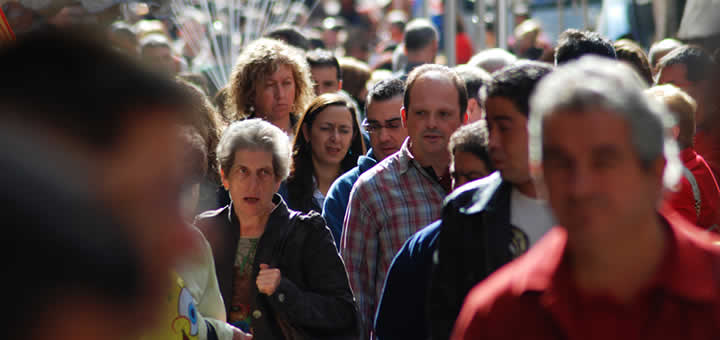Seize the power of the collective. Surman’s thinking was ahead of most of us in 2001. But reading this now and trying to bring the idea up to date, I’m struggling with a few things. The trouble for me starts with have we actually managed to seize anything. And, if we did, did we manage to transform it? What is this ‘collective’ if we define it in 2014, not 2001? Maybe, over the intervening years, we’ve managed this on a small community scale. Maybe around a few individual campaigns. But wasn’t this also what Occupy was about? Wasn’t this what Egypt was about? And no matter how you spin them, didn’t they fail? Ten years ago, I liked the term ‘civic commons’ that this collective model depends on. I thought that we could harness technology to ‘seize the collective’. The collective power of our communities. That we could create new digital commons to supplement and surpass old, ineffectual models of community. But the evidence tends to suggest that we can’t (or haven’t). That it’s not nearly that simple. And this is no criticism of Surman’s work, what he wrote really did make sense at the time. It was hugely influential in developing my thinking. But time moves on, technology becomes normative and the rose-tint of early adoption wears away. Idealism fades into a metaphor, into a slogan. And then it evaporates. On revisiting this idea of the digital-enabled collective, I can see some of it has happened. But not always in the way we hoped or expected. Not in the way we, I at least, would have liked. The commons is now Facebook and Twitter (businesses), Amazon, Uber, AirBnB and e-Bay (yep, they’re businesses). I could go on. OK, there are places like change.org or 38 Degrees, even Wikipedia, that might fit the model a little bit better. But do they? Are they communities? Are they collectives of like-minds taking action? I’d argue no, not really. They are transient and disconnected collections of weak-ties. Whilst this works for some things, they are manifestations of the crowd, they are not collectives. In reality we’ve unwittingly handed over control of our collective spaces to corporates (Facebook, Twitter, Google etc). How we converge, protest and coalesce in our public squares has always been regulated by governments. How we do it online is controlled by Facebook. They do this to a far greater degree than I suspect most of us understand and they do it without consultation, effective consent or independent oversight. This all runs across a spectral architecture that is far from neutral and quite likely to get a whole lot worse very soon. So, I had a reaction to ‘seize the power of the collective’. As I said, it’s talking about a ‘civic commons’ and this term is inherently too siloing, too restrictive and far too technologically deterministic. What I now see is a model that shifts power around: from communities to NGOs; from NGOs to governments; from everywhere and nowhere to corporates. But it’s still about power. ‘Civic commons’ it turns out are little more than a technocratic response in a neo-liberal model of governance. The marketisation of community. The productisation and commodification of dissent. I think it’s time we moved on from this being a good idea. The civic commons is simply a power shift and its colonisation an inevitable claiming or reclaiming of power. We hoped for an idealised shift in power from government to citizen (or citizens’ collectives) and an aggregation of individual power into these collectives. But we didn’t get it. We got Facebook instead. We got corporatised campaigning instead. And we got the NSA and GCHQ monitoring the network. Taking power from one privileged group to create another, just like holding power close, is always going to be a sub-optimal solution for the majority. It will never give us the legitimacy or scale we need to create real change. We need to re-shape and diffuse power, not simply move it. Seizing the collective is the wrong paradigm. We need to divest power from self-interests to communities, which I think was the original intent. In an equal society we all have the choice to engage or not engage. Today I would argue we have to win the hearts of the crowd through authentic dialogue and co-production. We have to enable our communities to build genuinely democratic social structures, to co-create solutions and share resources so that, if there is a collective, it includes everyone (and that includes partners in government and elsewhere). We work with, not against. We share what we know, what we do and what we learn. The commons as a digitally-constrained power block is dead but the commons as a social, co-created, tech-supported, but ultimately human, flat and inclusive space is more vital than ever. So perhaps, in 2014 what we need to do is:
Share the power with the crowd.]]>

One thought on “Let's Share the Power with the Crowd”
Comments are closed.